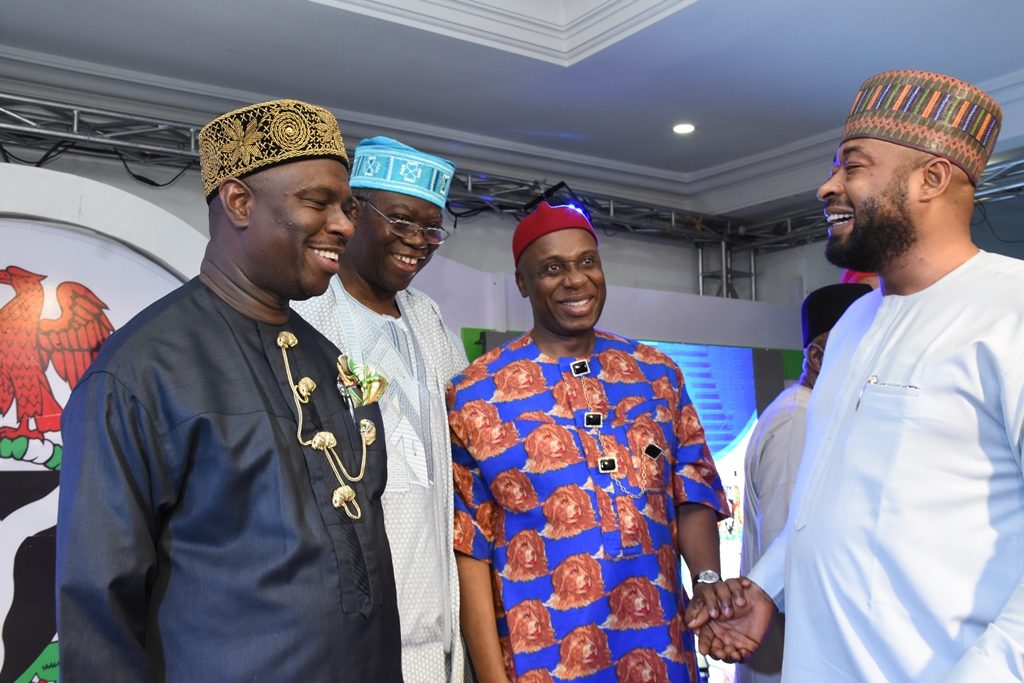In its quest to ensure the growth and development of the maritime sector in line with the Presidential order on the Ease of Doing Business in Nigeria, the Federal Government is set to automate all shipping related administrative processes in order to reduce subjectivity and corruption, thereby promoting transparency in the Nigerian maritime industry.
This is one of the major consensus reached in the communiqué issued at a one-day maritime stakeholders’ interactive forum held in Warri, Delta State with the theme; “Implementation of Executive Order One (1) – Ease of Doing Business in a secure maritime environment”.
According to the eighteen point communiqué, stakeholders agreed that in order to realize the desired accelerated growth of the Nigerian maritime sector, the Ministry and its agencies should explore alternate financing windows such as the establishment of Maritime Bank to address the financing gap created by the unsuitability of lending rates of Nigerian banks for the shipping business; consider reviving NIMAREX as a platform for bridging the gap between the Nigerian shipping industry and prospective international investors so as to provide impetus for growth and investment.
Furthermore, it was established in the communiqué that the Ministry and its agencies should take urgent steps to address the challenge of under-declaration of cargo by ships calling at Nigerian ports to plug the substantial revenue leakage thus created; that the Ministry and its agencies should cause the urgent dredging of the Escravos Bar to facilitate the access of large dry cargo vessels into Warri ports.
On the issue of safety and security of the maritime space, stakeholders were also of the view that the Ministry and its agencies should collaborate with the maritime communities with a view to relying on their local knowledge and intelligence for fighting maritime crimes like piracy, sea robbery and vessel hijack.
Also, the need for manpower development and capacity building was discussed as the communiqué urged that the Ministry and its agencies should consider a return to the former system whereby the Nigerian Ports Authority (NPA), National Inland Waterways Agency (NIWA) and the Nigerian Maritime Administration and Safety Agency (NIMASA) all contributed to the training of Master Mariners who are currently counted at 180 with above 75% being above the retirement age.
The issue of the Apapa gridlock and access road challenges was not left out as stakeholders charged the Ministries and its agencies to consider establishing transit parks for trucks waiting to access the ports and implement an automated call-up system that prevents their proliferation around the ports amongst other issues discussed at the forum.
Other areas highlighted are; that the Ministry and its agencies should consider establishing Complaints Desks and online feedback platforms to promote the ease of doing business in Nigerian maritime industry; amongst other pressing issues, all geared toward the realization of a robust and business friendly maritime sector that can compete favourably with its counterparts in other climes.
Corroborating the stakeholders’ yearnings as stated in the communiqué, the Director General of the Nigerian Maritime Administration and Safety Agency (NIMASA), Dr. Dakuku Peterside stated that the Federal Government through the Ministry of Transportation and other agencies under the Ministry will continue to work hard to ensure less human contacts with processes in the maritime sector, which is intended to give way to transparency and discourage sharp practices in the sector and assured the forum that all the points raised will be given urgent and due attention.
“The Federal Ministry of Transportation shapes the policy that drives the industry and we are servants in the industry; hence we will join hands with all stakeholders to build this industry in order to be able to continue to provide economic opportunities for our people. I therefore charge you all to shape opinions that will help Nigerians know that some people are working hard to take the maritime sector to the next level,” Dr. Peterside said.
On their parts, the Executive Secretary of the Nigerian Shippers’ Council (NSC), Barrister Hassan Bello and the Managing Director of the Nigerian Ports Authority (NPA) Ms. Hadiza Bala Usman also lend their voices and unanimously agreed that automation of all processes and collaboration with all stakeholders are keys to realizing a robust maritime sector, which also demands the support of all industry players.
The Maritime Stakeholders Interactive Forum was convened to provide a platform for exchange of ideas by the Ministry of Transportation, its agencies and industry stakeholders on government policies, processes and their immediate and potential impact. The ultimate aim of this initiative is to ensure ownership of government policies by the people most likely to be affected by the policies.
Photo: R-L: Chairman, House Committee on Maritime Safety, Education and Administration, Hon. Mohammed Umaru Bago, Minister of Transportation, Rt. Hon. Rotimi Amaechi, CON, Chairman, Board of the Nigerian Ports Authority (NPA), Mr. Emmanuel Olajide Adesoye and Director General, Nigerian Maritime Administration and Safety Agency (NIMASA) Dr. Dakuku Peterside during the 2nd edition of the maritime Stakeholders’ interactive forum tagged: “Implementation of Executive Order I (Ease of Doing Business) in a secure maritime environment” held in Warri, Delta State.
Send your news, press releases/articles to augustinenwadinamuo@yahoo.com. Also, follow us on Twitter @reportersinfo and on Facebook on facebook.com/primetimereporters or call the editor on 07030661526, 08053908817.

